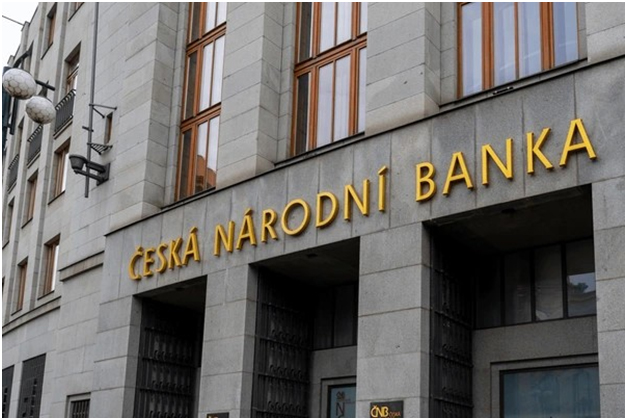In an attempt to understand the flow of crypto assets in a regulated financial environment, the Czech National Bank has started a US$1 million trial of digital currencies under its research program. The trial includes a little portfolio made of Bitcoin, a stablecoin backed by the US dollar, and a tokenised deposit. To avoid policy interference, the assets are placed outside the bank’s foreign-reserve system. This step is indicative of the growing global interest in the use of blockchain technology for trading.

Czech National Bank begins US$1 million trial to study regulated crypto flow.
Why Has The Czech National Bank Begun This Crypto Test?
The approval for the Czech National Bank crypto test was given after internal evaluations revealed radical shifts in the area of financial technology. The bank’s intention is to have practical experience with custody, settling and compliance matters. Besides, the bank’s plan includes trying out the cybersecurity frameworks that defend private keys. By conducting the pilot, central bank analysts will be able to see how decentralised instruments react in actual market conditions. The program is more about learning than earning.
How Will The CNB Cryptocurrency Experiment Operate?
The CNB cryptocurrency experiment is being executed by the bank’s innovation unit. The portfolio has a limit of US$1 million to prevent any financial losses. The bank will monitor the security of the wallet, multi-signature controls and liquidity procedures. It will also be experimenting with accounting models for digital assets on public blockchains. The Czech National Bank’s intention is to make the results available within two to three years. The research will be of great assistance in determining if digital assets can be of support to future financial market structures.

CNB innovation unit runs a controlled US$1 million crypto experiment to limit losses.
Central Banks Explore Digital-Asset Innovation
Central banks are studying the implications of tokenisation, stablecoins, and blockchain settlements in various parts of the world. By conducting the $1 million pilot, the Central Bank of the Czech Republic (CNB) has placed itself in line with this wider trend. The financial institutions are willing to take the plunge into the new asset classes only after they have evaluated the operational risks. The pilot project of the Czech National Bank has led to more acceptance of digital tools influencing payment systems. The experiment additionally shows a longing for tighter regulatory control over the crypto market.
Pilot Outcomes Could Influence Market Behaviour
Past successful tests of the Czech National Bank in the area of crypto might influence future policy discussions. It could lead to a central bank’s attention on tokenised bonds, deposits, or settlement instruments. Furthermore, it would be a positive step towards having stronger regulatory frameworks for custodians. Participants in the market might interpret the pilot as an indicator of growing interest from the side of institutions in the blockchain sector. Though the pilot scheme is limited, it nonetheless still provides important insights into the operational challenges of the sector.

Past CNB crypto tests may guide policy toward tokenised financial instruments.
What Are The Risks And Future Steps Ahead?
There are risks associated with the project, such as inconsistency, possible changes in regulations, and threats from cyber-attacks. The CNB is well aware of these factors and continues to have stringent controls. The banking experiment with cryptocurrency will unearth the inadequacies in the current financial infrastructure. The bank has plans, besides the above, to conduct further research on areas like the applications of blockchain, AI and payment systems innovation. The insights collected will serve not only to shape long-term policy thinking but also to enhance market resilience.
Also Read: Banks Enter the Cryptocurrency Market USA As Federal Oversight Sparks a New Era Of Digital Trading
Frequently Asked Questions
Q1: What are the components of the $1M crypto pilot CNB?
The pilot involves Bitcoin, a dollar-pegged stablecoin, and a tokenised deposit that is part of a controlled experimentation portfolio.
Q2: Will this program have any impact on the Czech National Bank’s reserves?
Not at all. The test portfolio is distinct from the bank’s total international reserves management.
Q3: How long will the CNB crypto test last?
The project is expected to be reviewed over a period of two to three years as part of the bank’s innovation agenda.
Q4: What might be the outcomes of the CNB cryptocurrency trial?
It could guide central banks in discerning risks associated with blockchain technology and operating controls in the future digital-asset frameworks.

